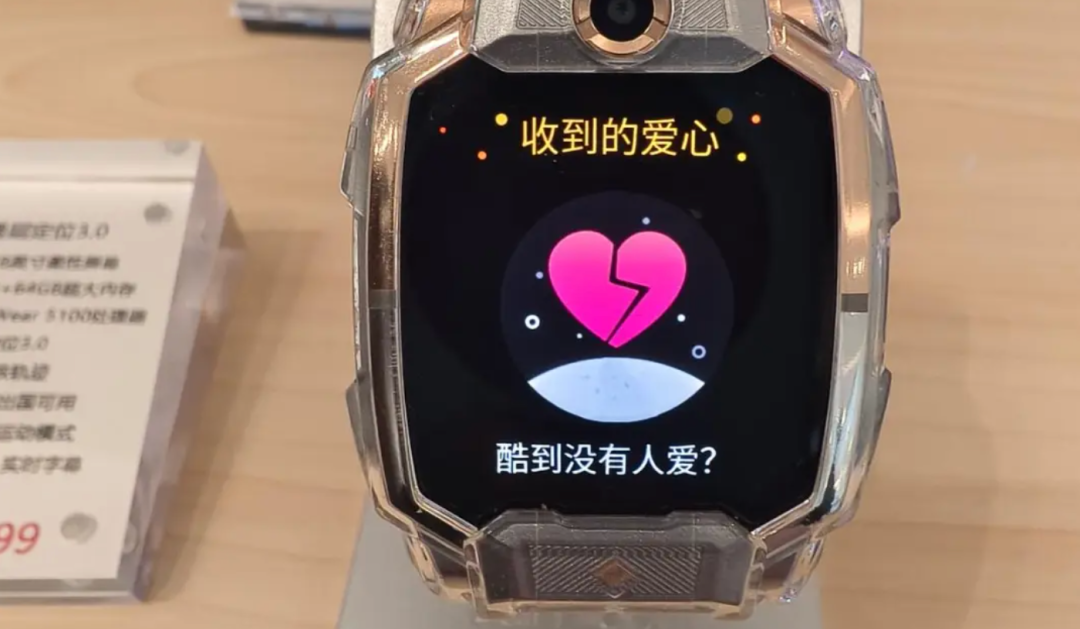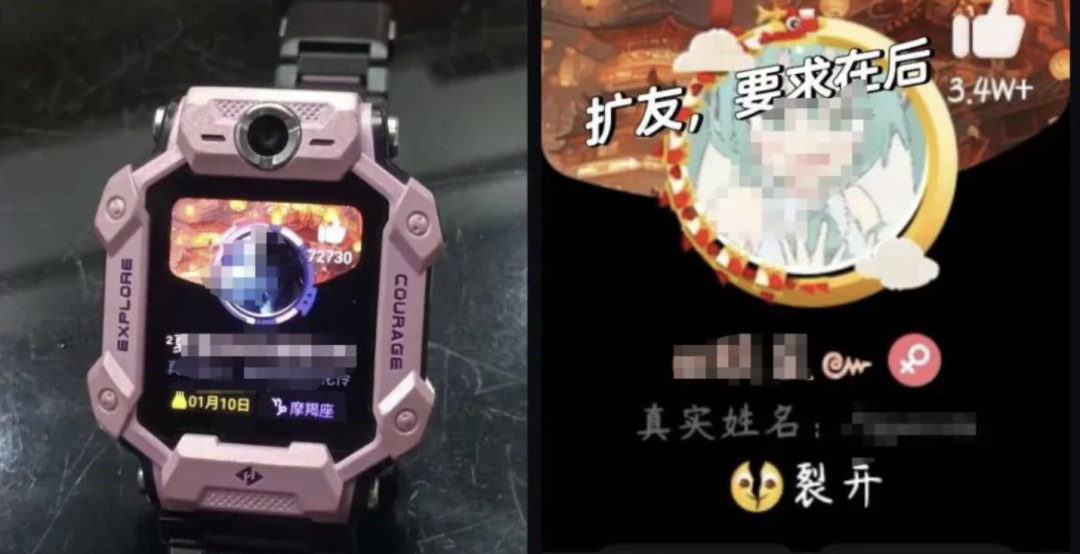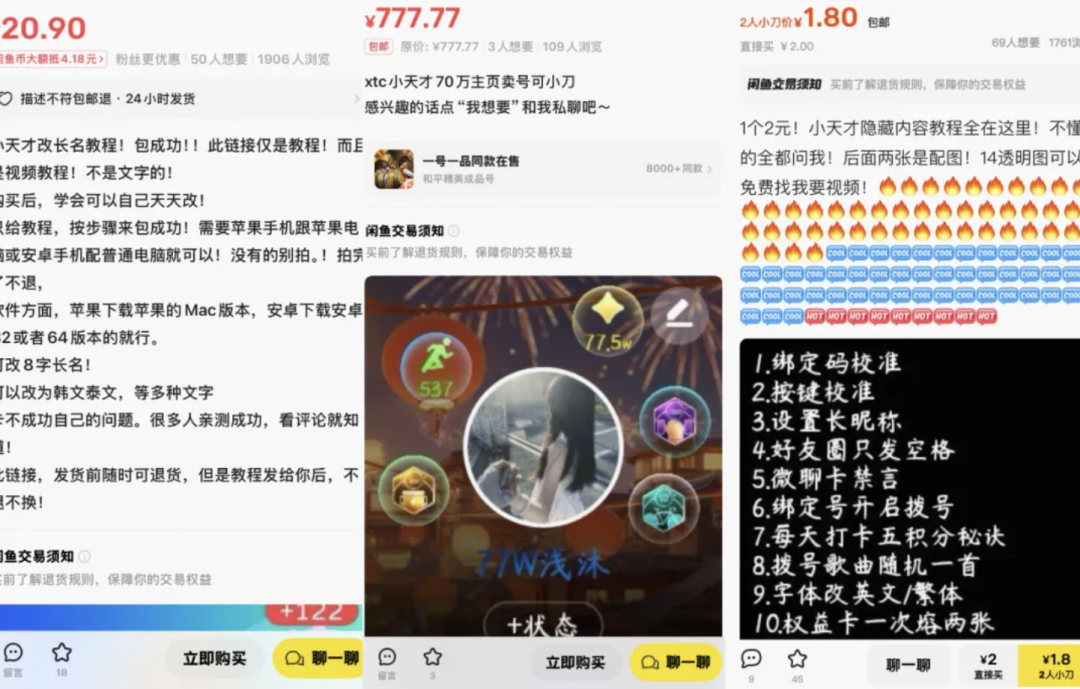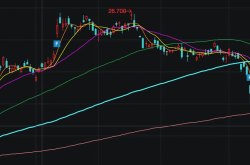The Hidden World of Little Genius Smartwatches: A Realm of Grey 'Adult-Like Games'
![]() 11/14 2025
11/14 2025
![]() 420
420

Source | Benyuan Finance
Author | Ye Xing
The 'Little Genius' smartwatch, which parents believe simplifies communication with their children, has seemingly morphed into a distinct social universe for kids—one that remains invisible and inaccessible to adults.
In this unique realm, children have established their own 'friend circles,' hierarchical structures, point systems, rule-like norms, and even a specialized linguistic framework, all intertwined with a burgeoning grey industry chain. In the real world, children without a Little Genius watch may find themselves excluded from their peers' social circles.
Behind each watch lies a largely unrecognized follower of Duan Yongping—Jin Zhijiang. Jin once asserted that the key to the success of all BBK products lies in a culture of 'integrity' and 'equanimity.' 'Integrity,' he explained, encompasses two facets: first, doing what is right; second, executing tasks correctly.
While the initially restrained Little Genius may have adhered to many 'right' principles, its current status as the 'Hermès of children's products' and a 'parental cash cow' demands closer scrutiny.
01
Selling Children's Social Connections
'My parents have meticulously planned every minute of my day; only my watch represents my own world.' This is how a 13-year-old describes the significance of the Little Genius.
In the smartwatch arena, Microsoft, LG, Motorola, Samsung, and Apple unveiled new products in 2014, while Qihoo 360 ventured into the children's watch market in 2013. By 2015, Huawei Honor, iFlytek Tao Cloud, Xiaomi Mitu, and other professional players had joined the fray, yet none managed to capture children's hearts.
That changed when BBK's subsidiary, Little Genius, pioneered the 'children's smartwatch' category with its first-generation Y01. Featuring two core functions—phone calls and location tracking—it enabled parents to locate their children via GPS at any time, while children could communicate with parents through the watch, effectively addressing parental safety concerns.
Parents purchased it for safety, but Jin Zhijiang recognized that the purchaser and user are distinct entities. Attracting children was paramount, as it would naturally compel parents to make the purchase.
Little Genius then revolutionized children's socialization. This strategic differentiation propelled it to sell 1.076 million units in its inaugural year, placing it among the top five global wearable device vendors alongside Samsung.
The first step in children's socialization was the 'bump to add friends' feature, reminiscent of adults' WeChat 'shake,' but predating Apple's Name Drop by eight years and exclusive to Little Genius users.
'Once, I couldn't reach my child and sought help from a classmate, only to be told that my son didn't use a Little Genius watch, so they weren't friends. To prevent his isolation, I had to buy one,' recounted a netizen. Surprisingly, a hierarchy exists within children's watch circles; without a Little Genius 'social ID,' friendship remains elusive.
Another pivotal feature is 'micro-chat.' Little Genius eschewed mainstream apps like WeChat and QQ, creating a closed children's social network distinct from its open-strategy competitors.
Within the Little Genius circle, children eagerly add friends, a practice they dub 'kuo lie' (expanding the list). Newly added friends engage in endless, uninhibited chats. Many adolescents even discuss sexual topics openly in this secluded environment.
As highlighted in 'The Circle Effect,' 'Today's children are more communal than ever. Communities are their conscious choice and perhaps the most critical identity marker, providing a sense of belonging, purpose, meaning, and acceptance.'
To deepen community ties, Little Genius introduced mutual likes on homepages in late 2021. Higher likes garner admiring glances and elevate 'social status.' Users with over 500,000 likes are dubbed 'xtc big shots' (xtc masters). More crucially, daily liking is mandatory; failing to like 20 posts risks deletion, an unspoken rule. Some children spend over two hours post-school completing likes.
Why are children so addicted? If a post receives no likes, Little Genius displays a pink broken heart with the caption, 'Too cool to be loved?'

This simple interaction defines love, making children feel 'popular' or 'ignored' in virtual socialization. They may genuinely believe they're unloved, struggling with this disparity. Children lacking real-life companionship seek emotional validation through watches, remaining loyal to this discourse. A 17-year-old girl with mild autism, friendless in reality, finds solace as 'Lingshi' (Spirit Master) in the watch circle—her only place of belonging. Additionally, Little Genius's chat app incorporates a point-based growth system, akin to adult currency. Points redeemable for custom avatars and chat boxes also facilitate offline trades for stationery and breakfast. While parents celebrate reduced phone use, children measure their 'social worth' via Little Genius watches.
As more children join, a robust competitive barrier forms, leaving rivals too late to react.
02
Even More Hidden Aspects
If the initial platform's ranking and like systems aimed to boost engagement, today's increasingly addictive gaming mechanics have transformed parts of children's socialization into a status-driven arena, even spawning a 'grey industry chain.'
In adult circles, status often stems from wealth; in Little Genius, it's likes and points.
User ranks dictate daily like limits. Some students flatter peers to boost likes, forming 'mutual like alliances.' Completing daily check-ins and step counts earns points. Children even 'ambush' classmates at school gates for point 'red envelopes,' creating a secondary market.

Likes and points constitute children's digital assets. Worryingly, the watch's 'homepage circle' has spurred derivative trades like like-boosting, account sales, virtual storefronts, account management, and parental control hacks.
Merchants report that accounts with 500,000 likes sell for 500 yuan, 242,000 likes for 80 yuan, and 1.25 million likes for 1,200 yuan.
With product iterations, features like photography, video calls, indoor positioning, custom watch faces, face swapping, object recognition, word extraction, socialization, and mood tracking have emerged. Some merchants illegally install games and Douyin (TikTok) via technical loopholes, opening new profit avenues.
Besides targeted agencies, many 'young merchants' proficient in these rules provide grey services. A 17-year-old 'agent' earns over 60,000 yuan annually, managing nearly 50 minor (underage) sub-agents, the youngest being 13. Shanghai's Yarong sold her 2 million-like account for 4,700 yuan after graduating high school.

These seemingly trivial trades consume children's time and energy, subtly distorting their values, friendship perceptions, and money views.
Within Little Genius's social circle, a list of 'influencers' circulates: Yu Shao, Tian Shao, Qing Huan, Jiang Wang, Yu Xi, Liu Nian—averaging 11-17 years old, middle to high school students.
Driven by curiosity and admiration for these 'influencers,' 'account opening' phenomena arise. For 20-30 yuan, agents sell software to extract personal data, fostering cyberbullying—no different from adult realms.
When children's watches, laden with social features, commodify and trade 'socialization,' they stray from their safety roots.
According to the China Industry Research Institute's '2022-2027 China Children's Smartwatch Industry Depth Research and Investment Prospect Forecast Report,' China has roughly 170 million children aged 5-12, with a 30% smartwatch penetration rate. Thus, one in three children owns a smartwatch, rising to one in two in urban areas.
In the first half of 2025, Little Genius led China's children's smartwatch market with a 35.3% share and astonishing growth.
In the 1980s-90s, Duan Yongping rose to prominence with the Subor learning computer, founding BBK Electronics and spawning VIVO, OPPO, BBK Education Electronics, and Little Genius. Even Pinduoduo's Huang Zheng and J&T Express's Li Jie are his 'disciples.' This 'Chinese parental wallet harvester' has proven his might through countless business cases, dominating generations' social landscapes. Jin Zhijiang, inheriting Duan's legacy, propelled Little Genius to new heights—but should he not also consider legality and whether he's truly 'doing the right thing?'
End


